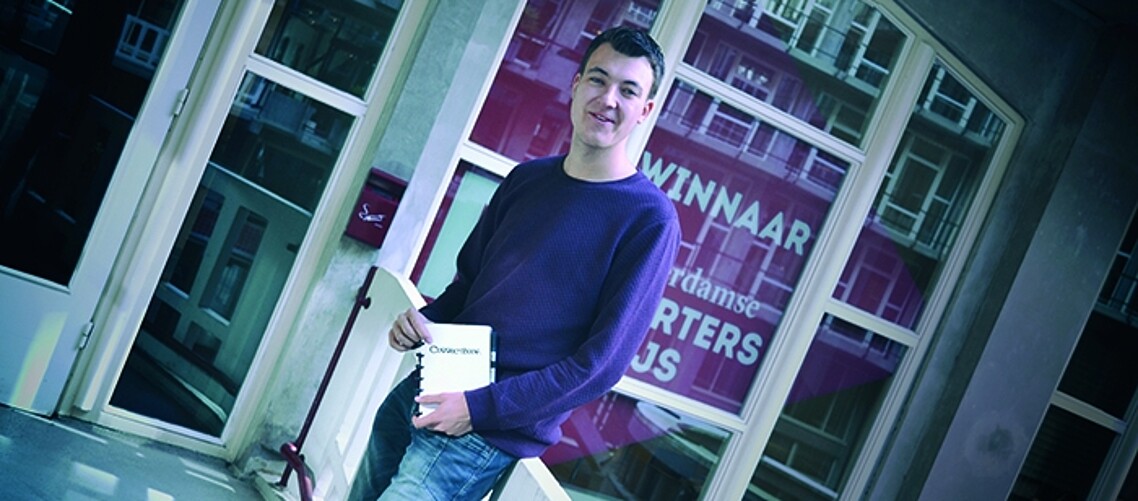The desire to help came to Sam van Tol (BSc BA 2015 & MSc Strategic Entrepreneurship 2016) while on holiday. ‘In South Africa I saw a lot of poverty and was wondering if I could do anything to help,’ he explains. ‘One day in a local restaurant, I noticed that some diners were taking food outside and giving it to people on the street. I followed their lead and gave some of mine to a parking lot attendant. He seemed so happy that it made me want to do more.’
Feeding the poor is certainly one way to become a force for positive change, but it is also some way from designing reusable notebooks that he eventually developed. Sam’s next step was to look at some of the country’s other social problems, to see where he could be of most use.
Shocking problems
When he started looking into schools he was shocked to see the problems they had with illiteracy. He realised that while the government and charities were doing their best, they were spending all their resources on building schools and providing teachers.
But this policy, however worthy, meant little was left to be spent on books and pens. ‘There were schools for the children and plenty of teachers, but they had very few materials and couldn’t afford to buy any, largely because the paper notebooks could only be used once,’ Sam points out. ‘It was prolonging illiteracy because the kids had nothing to write on and so were unable to practise what they had learned.’
Sam made it his mission to create a solution: reusable stationary, in the form of a specially designed pen, and a notebook you can write in, then erase your handwriting and write in again and again, cutting down on both costs and waste.
Correctbook describes itself today as a ‘social enterprise battling against illiteracy in developing countries.’ The company offers its innovative reusable stationery products to businesses, schools and other buyers in the Netherlands and elsewhere. The proceeds from these are then used to donate similar materials to schools in the poorest areas of South Africa. It does this in partnership with the Kwasa and Rhiza foundations, two Dutch-based charities that work in the region and help to distribute Correctbook products where they are most needed.
Learning curve
Getting Correctbook off the ground was a steep learning curve for Sam. Like any start-up, charitable or not, there are administrative aspects to learn about, such as how to build a website and sell your product.
‘Firstly I managed to find a partner based in Lithuania who could make the book I was looking for,’ he says. He then began a pre-scale crowdfunding campaign in the Netherlands. ‘The campaign got us a lot of media attention. I was able to raise €10,000, which allowed us to fund the first production run and build a website to sell Correctbook,’ he continues.
Sam founded Correctbook in his third year at RSM. Did his experience at the school help to smooth the learning curve? ‘I was always good at maths, but had already decided I didn’t like accounting,’ he says. ‘RSM helped me with networking and taught me about entrepreneurship. But most importantly, it gave me the space to think about and develop other ideas.’
Correctbook is growing fast, and is now developing partnerships in the Netherlands with education book specialists Studystore and Van Dijk. The company’s current success has also meant that while Sam may have other ideas in the pipeline, most have had to go on hold.
There are, however, plans to develop new Correctbook products, and Sam also wants to work towards more sustainable education, both in the Netherlands and in Africa.
‘We may expand into other countries in Africa in the future,’ he says. ‘But the advantage of concentrating on one for now is that we only have one place for distributing to schools, and this makes it much easier to monitor and control.’
